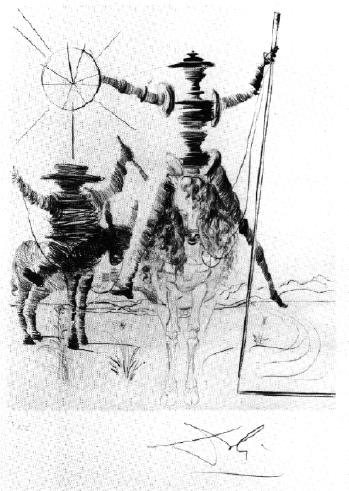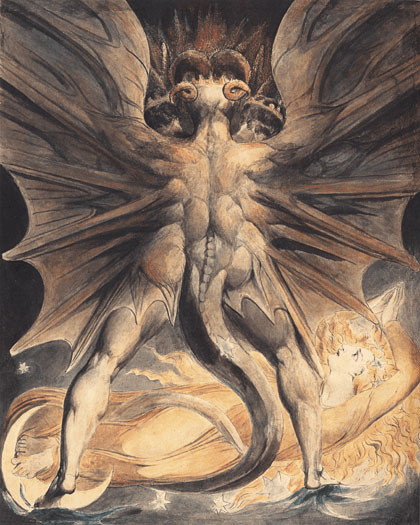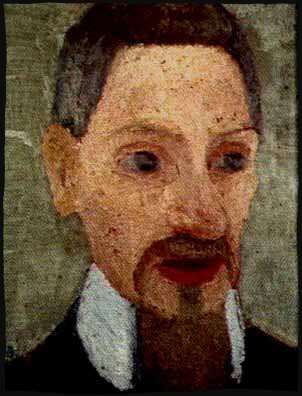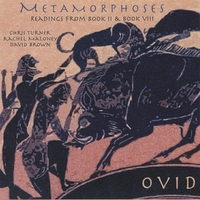
Wednesday, October 22, 2008
Nabokov: "Quit Laughing at Don Quixote!"

Mad-man of La Mancha




"The road of excess leads to the palace of wisdom"


The abundance of William Blake paintings out there really surprised me, first because i've always heard of William Blake in the context of poetry and had no idea he was a painter/engraver as well and second because these painting are OUT THERE, exhuberant, OVER-THE-TOP, wooo wooooooooo............
((More on Blake to come))
Hymn to Intellectual Beauty
Ode on a Grecian Urn

For ever warm and still to be enjoy'd,
For ever panting, and for ever young;
All breathing human passion far above,
That leaves a heart high-sorrowful and cloy'd,
A burning forehead, and a parching tongue.
Saturday, October 11, 2008
Rhapsody to Rilke

"As the bees bring in the honey, so do we fetch the sweetest out of everythingEffectively, the poet builds god, he and god are one. Anagogic may be the only one of the 5 symbolic phases i'm clear on, thanks to the Rilke allusion.
and build Him. With the trivial, even with the insignificant (if it but happens
out of love) we make a start...with everything we do alone...we begin him"
(Rilke)

Wednesday, October 8, 2008
Polemics, Apologetics
Curiously enough (leave it to the genius of wikipedia- one thing leads to another, link after link of synchronization), the definition for polemic included it's antonym: Apologia. As in Apologetics. Apologists argue for, rather than against, those touchy theories. Apologia is Frye= polemics. Sidney/ Shelley= apologetics. Anyways, i thought it was quite interesting that Frye and Sidney are by definition, opposites, both in style and in school of thought, since that was the initial impression I got in reading and comparing their works.
Myth of the Declining Ages

"I want to speak about bodies changed into new forms. You, gods, since you
are the ones who alter these, and all other things, inspire my attempt, and spin
out a continuous thread of words, from the world's first origins to my own
time."This is, essentially, the idea that all poems are made out of other poems; all stories are a retelling; all literature is displaced myth: this is the assertion at the heart of Frye's theories on literary criticism. And lo and behold, it's Ovid! Amazing....
Check out the Myth of the declining ages, which recalls another part of our class discussion today, that of scripture and the religious interpretation of myth. Frye says that all literature is an extension of myth and you will see outlined in the myth of the declining ages the story of the fall of the man in the Bible (followed by Jupiter attempting to destroy the world with a flood. Biblical?)
And that's just the beginning...
Friday, October 3, 2008
Apology for Criticism
However, I came across a passage today in Frye that struck me for it's convincing argument for criticism- so convincing that I had sort one of those lightbulb moments where it all came together: This is why criticism is so important!
It happened on Page 87 in the theory of symbols essay. Citing the example of the Bible as the inevitability of a sacred book and commentary on it's contents, Frye asserts that "when a poetic structure attains a certain degree of concentration or social recognition, the amount of commentary (read: criticism) that it will attain is infinite" (Frye 88). The analogies that follow to explain the inevitability and need for the critic, such as that of the scientist who is able to make theories about phenomenas in the universe that he cannot see or count, gave me the insight i needed to grasp this idea: "there is no occasion for wondering... how one small poet's head can carry the amount of wit, wisdom, instruction, and significance that Shakespeare and Dante have given the world" (Frye 88). And just like that I can't debate the relevance of criticism any more. As the poet's words, however beautiful they may be, are open to infinite interpretations and reactions, there is a case for criticism.
A Visionary Critic

Wow. In reading the briefest of brief summaries of the life of William Blake I can already say that I get it. I understand Sexson's insistence on the importance of this man to literary criticism. And that is just from the summary. I've yet to read this man's work (which goes beyond just poetry) and see what everybody's talking about. Additionally, a while back when I first wiki-ed Northrop Frye for information on "Anatomy of Criticism", I was linked to his biography (Frye) in which I discovered, in the first few sentences of the wiki-bio, that William Blake was one of Frye's primary influences. In fact, it was "The insights gained from his study of Blake" that "set Frye on his critical path,and shaped his contributions to literary criticism and theory" (wikipedia, Northrop Frye). Statements such as this suggest that in our thorough studies of the theories of Northrop Frye, we have been, effectively, studying William Blake all along. "Anatomy of Criticism" was inspired by Frye's works on Blake.
Blake's philosophy is in the vein of our favorite romantics: imagination above reason, exhuberance: "His poetic and artistic work is characterized by a unique commitment to imagination as opposed to reason, and the visionary, almost terrifying, and sometimes grotesque nature of his subject matter" (William Blake- poets.org) And I would go further as to say not only by exhuberant ideas, but also an exhuberant manner of presentation of these ideas: in "illuminated manunscripts"- text, engravings, illustrations all intertwined.
"I must create a system or be enslaved by another man's" said Blake. Isn't this the cyclical thought behind the chapters in Frye we are studying now?
I've read a bit about Blake as a poet and painter thus far, but i've yet to look into his role as a critic. Although I suppose that these roles are really one in the same.
Tautologically Speaking...
I think that literary criticism would be one such idea. Actually, when I was first getting into the theory of symbols, my initial thought was "Is this how you have to write in order to express a theory without a trace of tautology?" and, if so, what hope is there for the rest of us!
That was initially, as I read further I started to make note of some sentences that, within some very dense and meticulous passages, sound right repetitive... in Frye. For example, in "Literal and descriptive phases: symbol as motif and sign", I was a little stunned after reading this one:
"Poetic images do not state or point to anything, but, by pointing to eachother, they suggest or inform the mood that informs the poem" (Frye 81). Now, that sounds circular to me. But I'm sure a critic like Frye would never implore such a pathetic principle in his work.
Am I not getting the right idea of what Tautology is?
A wiki-search for the definition asks me to be a little more specific.... do I want to define tautology in regards to rhetoric or tautology in logic. I assume for our classes purposes, the rhetorical version. But just out of curiosity, what's the difference?
Tautology (rhetoric) is what we were making fun of Sarah Palin for in class- that is, the unecessary repetition of an idea; using different words to say the same thing twice. People who implore this rhetoric technique end up sounding either a)confusing, b) like children or c) like idiots. Rhetorical tautology can be logical if the sentence illustrates a truth, but it will usually be a completely useless assertions (wiki ex: "If you can't find it, you're not looking in the right place). Basically tautoloy in rhetoric is always going to be useless, senseless, or unecessary.
http://en.wikipedia.org/wiki/Tautology
As for tautology in logic- tautology that actually points to the truth and gets you somewhere.... that's a concept for the mathmeticians.
Wednesday, October 1, 2008
Music, Sweet Music
But in the most recent reading of Frye, in between those "overboard" passages, I did happen upon some analogies that gave me some clarity. Fresh off of this newfound "understanding" of Frye (a vague understanding, but thats better than my previous state), I was very grateful for the "lightbulb" moments assignment we recieved in class today. In the last couple of days I've had a few to contribute!
It started for me in the description of the formal phase in the theory of symbols. (The formal phase which coincides with the New Critic's school of thought, which I'm to adopt for the final project), wherein Frye suggests the analogy of music as a way of understanding the roles of form and imagery in text. "The average audience at a symphony knows very little about sonata form, and misses practically all the subtleties detected by an analysis of the score; yet those subtleties are really there, and as the audience can hear everything that is being played, it gets them all as a part of a linear experience; the awareness is less concious, but not less real. The same is true of the response to the imagery of a highly poetic drama."
As with Walter Pater ("All the arts aspire to music") and Rilke ("Language where all language ends"), nothing proves more infallible an analogy than that of Music.
Comparing Criticisms
